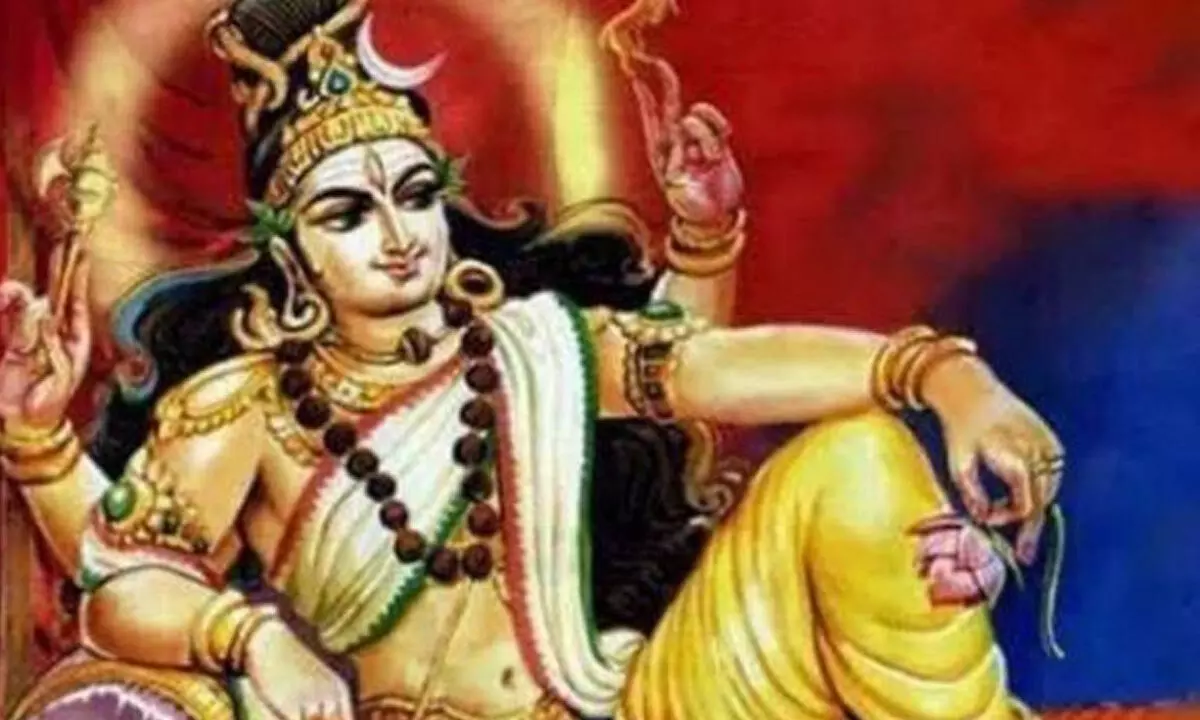Live
- Cong won all 3 seats on basis of guarantees, development: Dy CM on K’taka bypolls
- Santosh Trophy: Odisha rout Chhattisgarh to make final rounds
- BJP hijacked electoral machinery for securing victory in Maharashtra: Cong
- Formula 1: Russell pips Sainz to take pole in Las Vegas GP
- India under Trump 2.0 could bolster its position in global supply chains
- People voted for ideology, rejected dynasty: Sudhanshu Trivedi on Maha victory
- AP, Telangana to receive rains for next three days as low pressure to turn depression
- Kailash Gahlot inducted into BJP’s Delhi election panel
- With state elections over, Indian stock market heads for stability
- Mahayuti's Ladki Bahin Brahmastra demolishes MVA in Maharashtra
Just In

We see that allocation of duties in an organization is not much of a contentious issue though some are regarded high and some as low.
We see that allocation of duties in an organization is not much of a contentious issue though some are regarded high and some as low. Psychologists conduct tests and decide the aptitude and capability of a person for a post. This is possible in a modern organization in which people are tested and skills upgraded. Can we visualize this for society at large?
Of course, when society was in its infancy, the leaders and thinkers of all societies did some exercise on this. We see uniformity in the classification of people into four groups in all ancient civilizations. There must have been some logic in doing so, but the old civilizations are now wiped out. Ours is the only living and continuous civilization, still having some last traces of such structure. Krishna refers to it twice in the Gita. In the beginning he says that the four-fold categorization is part of nature’s design, and that the division of duties was done as per the nature of a person (4-13). Again, at the end of his counsel to Arjuna, he repeats it (18-41).
Krishna says that the allocation of duties is according to the svabhava (nature) of a person. This svabhava is the innate nature of a person right from birth. One may show tendencies such as being disciplined, inclined to learning, forgiving in nature, and such qualities. Such nature was called sattva. Another may show the tendencies to dominate, to command, be firm, show courage and so on. Such nature was called rajas. Some others may show tendencies of accumulating things and being businesslike. This was a variant of rajas. There are also some who leave decisions to others, do not bother much and tend to obey others. This was called tamas. The three gunas – sattva, rajas and tamas – pervade all objects and living beings in the universe.
Manu Smriti mentions the existence of a system in which a competent teacher examines a boy and decides where he would fit in (2-148). This was possible when the society mostly consisted of villages and small communities. As the numbers grew this became humanly impossible, and the people born in one category were allowed to continue in that. A boy would naturally imbibe the qualities of that category from the elders. But this was challenged even in the time of Mahabharata.
An episode in the Mahabharata talks about a great king Nahusha who was under a curse to be a python until some wise person would release him from his curse by answering his questions. He had the strength to catch even the strongest beings. The mighty Bhima, wandering in the forest, got caught by the python and was about to be devoured as he could not answer the questions. Meanwhile, Yudhishtira went and faced the questions. An interesting discussion took place. ‘Who is a brahmin’, asked Nahusha. Yudhishtira replied about the qualities needed in a brahmin. There was a counter question, ‘what if someone born in some other varna had these qualities’? Yudhishtira answered, ‘he should be treated as a brahmin’. Another question came, ‘what if a person born in brahmin varna does not have qualities which are prescribed for a brahmin’? Yudhishtira replied, ‘he should not be treated as a brahmin but be treated as per his qualities’. This perhaps was implemented in the olden days. Thus, we see people like Valmiki, Vyasa and many others being accepted as rishis.
This is a highly contemporary issue. Even in later times Indian society has been accepting sages from all sections. They also accepted people born in one varna in the same varna whether they fully had the qualities or not, noting the impact of the environment too. Heredity and environment both play their role, they realized.
Only four varnas (based on human psychology), depending on innate nature were told in the scriptures, but the thousands of castes as we see now, were nowhere categorized. They evolved as per the social needs. This is a misconception which has entered our minds due to ignorance of texts.
(The writer is a former
DGP, Andhra Pradesh)

© 2024 Hyderabad Media House Limited/The Hans India. All rights reserved. Powered by hocalwire.com







